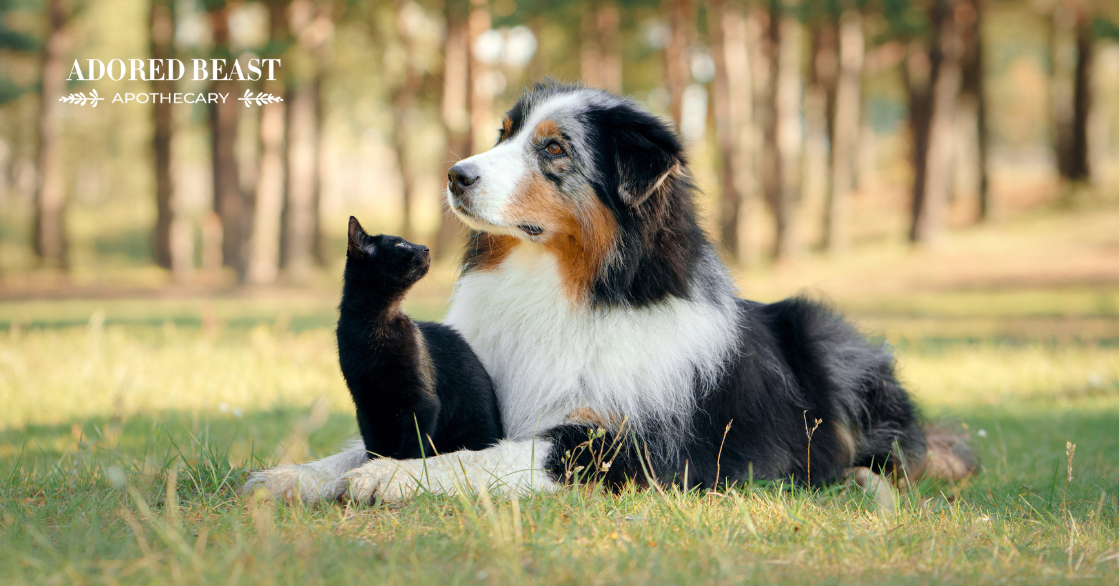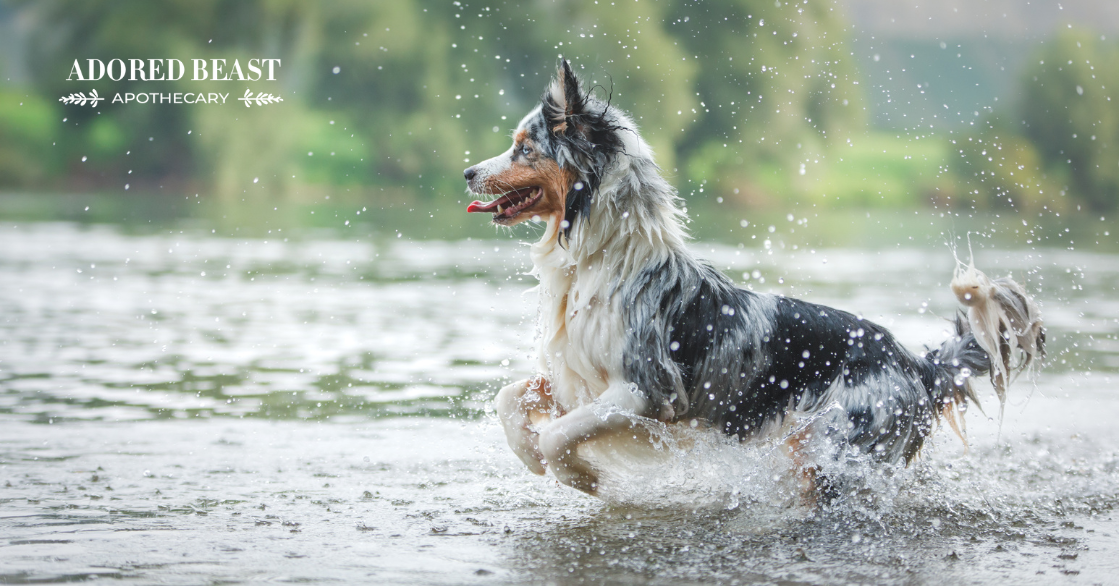Do you know what oxidative stress is?
It might sound like a term reserved for science labs, but it’s something that can profoundly impact the health of our animals. Just as with humans, oxidative stress in animals plays a role in aging, disease development, and overall well-being.
Maybe you’ve never heard the term before or maybe you know all about it. Either way, we’re here to break down what oxidative stress is, its causes, the havoc it wreaks in our animals’ bodies, and how we can help combat its harmful effects.
What is Oxidative Stress?
Oxidative stress occurs when there is an imbalance between free radicals and antioxidants in the body.
Free radicals are unstable molecules produced naturally during normal processes like metabolism or in response to environmental factors. These molecules are missing an electron, making them highly reactive. While the body needs some free radicals for functions like fighting infections, too many can overwhelm the system.
This overgrowth of free radicals in the body can happen as a result of several factors, many of which our animals face each and every day:
- Environmental Toxins: Exposure to pollutants, pesticides, smoke, radiation, and chemicals.
- Poor Diet: A lack of essential nutrients or a diet high in processed foods.
- Stress: Physical or emotional stress can increase free radical production.
- Aging: As animals age, their natural antioxidant defenses can decline.
- Inflammation: The inflammatory process induces oxidative stress and reduces cellular antioxidant capacity.
- Other Medical Conditions: Chronic illnesses, infections, or inflammatory diseases can exacerbate it.

How Does Oxidative Stress Harm an Animal’s Body?
When free radicals outnumber antioxidants, leading to oxidative stress, they can cause major damage to the cells.
Cells are the basic unit of life and perform a variety of very important functions in the body, including creating antibodies to fight infection, taking in nutrients from food, creating energy, and regulating body temperature.
For optimal health, cells need to be able to function. And oxidative stress inhibits this ability.
When that happens, there are several negative consequences:
- Accelerated Aging: It is a key factor in the aging process, and since we all want our animals to live longer, well, that’s a big problem!
- Chronic Inflammation: Free radicals can trigger or worsen inflammation. (And yes, this chronic inflammation triggers oxidative stress – it’s a vicious cycle!)
- Organ Damage: High levels can impair vital organs like the heart, liver, and kidneys.
- Disease Development: Conditions such as cancer, arthritis, diabetes, and neurodegenerative diseases have been linked to oxidative stress.
What Are Antioxidants and How Do They Help?
Antioxidants are molecules that neutralize free radicals by donating an electron, effectively stabilizing them and preventing cellular damage. The body naturally produces some antioxidants, but additional sources from diet or supplements can enhance these defenses.
Antioxidants work on cells in 3 important ways:
- Neutralization: Antioxidants stabilize free radicals, preventing them from reacting with and damaging cell components.
- Repair: Some antioxidants help repair damage caused by oxidative stress.
- Support Immune Function: By reducing oxidative stress, antioxidants allow the immune system to function more efficiently.
There are many ways to provide your animal with valuable antioxidants to fight free radicals and oxidative stress. Many foods, such as berries, apples, cherries, and dark leafy greens contain antioxidants. Supplements such as phytoplankton and many medicinal mushrooms like Chaga are also very high in antioxidants. Our NEW Vital Defense is a powerful combination of Chaga and phytoplankton formulated specifically to combat free radicals and derail the cyclical process of oxidative stress in the body!
Oxidative stress is a hidden danger that affects animals in subtle yet significant ways. Understanding its causes and effects allows us to take proactive steps to support their health. By ensuring a diet rich in antioxidants, minimizing environmental stressors, and consulting with your veterinarian, you can help your animals thrive and reduce the long-term impacts of oxidative stress.












